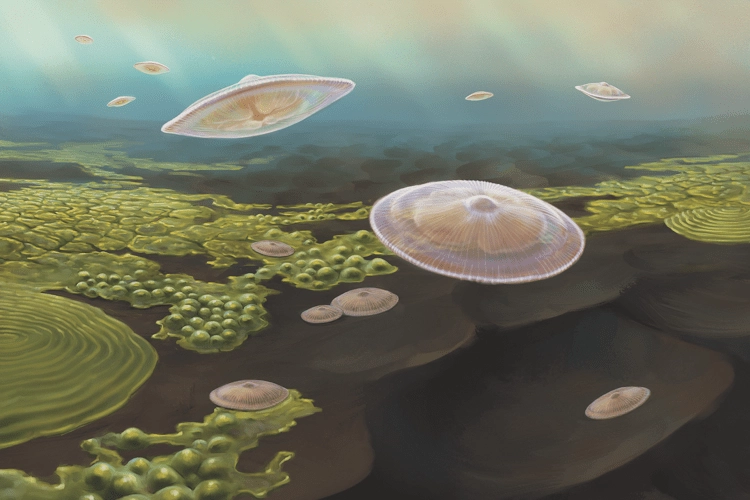
New research on Central Africa’s Atlantic coast reveals that the conditions needed for early life existed much earlier than once thought, and likely led to the evolution of complex organisms
By
The Franceville Basin, primarily located in southeastern Gabon, is a geological time capsule. Formed roughly 1.6–2.1 billion years ago, this ancient basin holds a record of the Earth’s early environment preserved in its sedimentary rocks. Remarkably, these rocks have remained largely untouched by the geological processes that often distort or destroy such records. It’s here that a team of scientists, led by researchers at Cardiff University, recently found evidence suggesting that complex life evolved much earlier than we once thought.
Until now, scientists have largely accepted that animals first emerged on Earth some 635 million years ago, during a period known as the Cambrian explosion. But according to Ernest Chi Fru, a researcher in geomicrobiology and lead author of the study, the team’s geochemical analysis of marine sedimentary rocks – deposited 2.1 billion years ago – reveals an ecosystem that appeared 1.5 billion years earlier on Central Africa’s Atlantic coast. Their results shed light on a highly disputed collection of unusually large fossils previously found in the region.
The discovery of Gabon’s 17-centimetre macrofossils in 2014, by a team of researchers led by geologist Abderrazak El Albani, was a controversial one. Some scientists have suggested that the Francevillian biota, as they are officially known, could be evidence of the earliest form of multicellular life. Not everyone agrees. Looking for evidence to support the theory, Fru and his colleagues collected sediment cores drilled from the black shale that forms the Franceville Basin.
The chemistry in the cores reveals that, before the rock formed, environmental conditions were suitable for the evolution of life. The researchers think that underwater volcanic activity following the collision of two continents created a shallow, nutrient-rich marine inland sea – a ‘laboratory’ that may have triggered the first evolution of complex organisms. High in phosphorus and oxygen, these waters would have supported a plentiful food supply. ‘This would have provided sufficient energy to promote an increase in body size and greater complex behaviour observed in primitive simple animal-like lifeforms such as those found in the fossils from this period,’ says Fru.
However, with no way to sustain this supply of nutrients, the isolation of this new ecosystem likely led to its demise. The researchers suggest that two major increases in atmospheric oxygen led to a two-step evolution of life on Earth. The first, 2.1 billion years ago, ultimately failed, but the second resulted in the biodiversity we see on our planet today.




